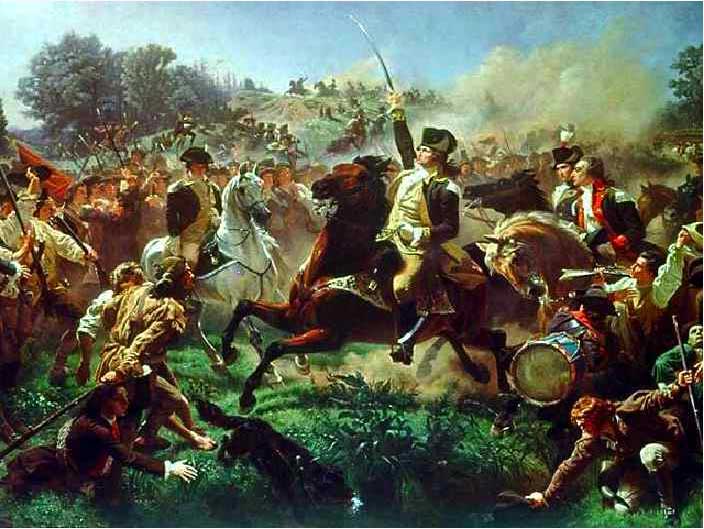Battle of Monmouth 1778

The British withdrew from Philadelphia with a large train of supplies. General Washington carefully followed the British and, near Monmouth Court House, ordered an attack on the rear of their train. The fight soon turned into a general engagement between British and American forces. The American lines broke until General Washington arrived and single-handedly rallied the American troops.
.
By the summer of 1778, the British had decided to evacuate Philadelphia. Washington was intent on disrupting the British withdrawal to New York. There was some disagreement among Washington's general. Finally, Washington assigned General Lee, (who had been recently freed by the British after being exchanged), to lead an assault on the rear of the British column. At 7:00 am on June 28th, under the command of General Lee, a force of 6,000 Americans set off in pursuit of the rear of the British force.
Clashes began as soon as the advance forces of the American troops caught up with the British rear. British General Clinton was more than willing to engage in a fight. He swiftly ordered immediate reinforcements to meet the Americans. Before long, Lee, who started the battle with a 3-1 numerical advantage, found himself facing an equal, and sometime larger, British force. Parts of the American line broke, and before long, Lee ordered a general retreat.
General Washington was seven miles away. When he learned of the retreat, he rode forward and called General Lee "a dammed Poltroon" and relieved him of his command. Washington immediately organized the American troops into a defensive line. The British repeatedly attacked the American lines, on what was a very hot and stifling day. Dozens of soldiers fell, not from bullets, but from heat exhaustion. The battle lasted the whole day. By nightfall, both sides were exhausted.
Washington had hoped to renew the battle when the sun came up. However, when it did, Washington found that the British had slipped off into the night. The battle is considered a draw with 500 British casualties and 300 Americans casualties. General Howe successfully moved his army to New York
 >
>